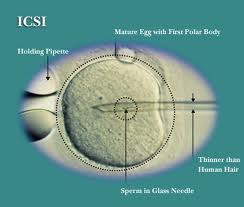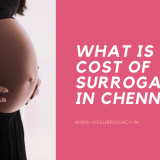ICSI TREATMENT IN INDIA
ICSI TREATMENT IN INDIA
The major difference is that instead of just mixing sperm and eggs together in a dish and hoping that fertilisation will take place, a single sperm is taken and injected directly into each egg, to maximize the chances of fertilisation taking place.
After fertilisation the eggs are cultured and graded and three or exceptionally, four are transferred into the womb of the female.
Who is suitable for ICSI?:
1. Those patients who have had poor fertilisation rates through IVF procedure in a previous cycle:
It is not always possible to identify patients who are likely to suffer from failed fertilisation at IVF by using a Semen Analysis test. In many cases the reason for failure is not known.
2. Couples with ‘male fertility factor’ or male with reduced sperm quality or quantity:
For those men who have sperm which are of very poor quality or very less quantity, conventional IVF would be inappropriate as it would be highly unlikely to succeed. ICSI would enable the embryologist to select the best looking sperm and inject it in the egg
3. Couples where the male partner has a blockage or abnormality in the testes which prevents the sperm from appearing in the ejaculate:
Male patients with a testicular blockage or abnormality, can have sperm drained through a needle directly from the testicles . ICSI is needed in these cases because the sperm are immature and unable to fertilise an egg.

How is ICSI performed ?
There are basically five simple steps to ICSI which include the following:
1. The mature egg is held with a specialized pipette.
2. A very delicate, sharp, and hollow needle is used to immobilize and pick up a single sperm.
3. This needle is then carefully inserted through the shell of the egg and into the cytoplasm of the egg.
4. The sperm is injected into the cytoplasm, and the needle is carefully removed.
5. The eggs are checked the following day for evidence of normal fertilization.
Once the steps of ICSI are complete and fertilization is successful, the embryo transfer procedure is used to place the healthy embryos in the woman’s uterus. The female can go home the same day and is advised rest for a few days. Two weeks after the embryo transfer, a test is done to detect pregnancy. The IVF-ICSI specialist may use a blood test or ultrasound to determine if implantation and pregnancy has occurred.Overall, ICSI is a procedure we follow in cases where we suspect the sperm count or motility or the sperm quality will not be sufficient to fertilize the eggs on its own, therefore, we assist the sperm in fertilizing the eggs. At Go IVF clincis, we use ICSI as a standard procedure, hence, it does not cost anything extra on top of the low cost IVF program.
Begin the ICSI process
How many embryos will be transferred in me?
The decision of the number of embryos to be transferred is taken by the IVF specialist after the ICSI Treatment procedure. she will take a call on the number of embryos to be transferred in you. She will also consul you and then does the transfer. The IVF specialist will normally transfer 3 – 4 good looking embryos in the female intended parent.
Timeline and Stay in India
If you are coming for ICSI with your own eggs, you will needs to stay for 18 – 21 days in India. If you are coming for ICSI with an egg donor, the donor would be started on medications prior to your arrival and your stay would be for 10 days in India. A hotel or a decent guest house near the clinic can be arranged for you.
How much does ICSI cost?
ICSI at one of our IVF centre in India can cost you between USD 4500 – 5500 for the entire cycle with your own eggs. Hormonal medications are included in the package. If you need an egg donor too, there would be an additional cost as per the donor selected (Indian / Caucasian).
What is included in the ICSI treatment cost?
– initial consultation or follow-up consultation (as appropriate) cost of fertility drugs treatment planning
– ultrasound monitoring scans
– teaching how to give injections
– egg collection
– sperm preparation
– ICSI insemination of eggs
– embryo transfer
– Airport pick up, drop and car for first day consultation
What is not included in the IVF treatment cost?
– treatment assessment or repeat screening (as appropriate) embryo freezing and storage for first year (if suitable)
– fee for freezing sperm (if required)
-fee for surgical sperm retrieval (if required)
Final Process
You can contact us by filling out a form or emailing us. We will get the opinion of the IVF specialist and send you a few medical tests list that she will need to opine on your case. Once these medical tests are reviewed by her, we can plan for your ICSI cycle the next month or as per your schedule.
NEED AN ANSWER NOW?
Call us
+91-989-929-3903
E-Mail US
info@ivfsurrogacy.in
Chat with us
Have a question for our staff? We’re here available to help via Live Chat

